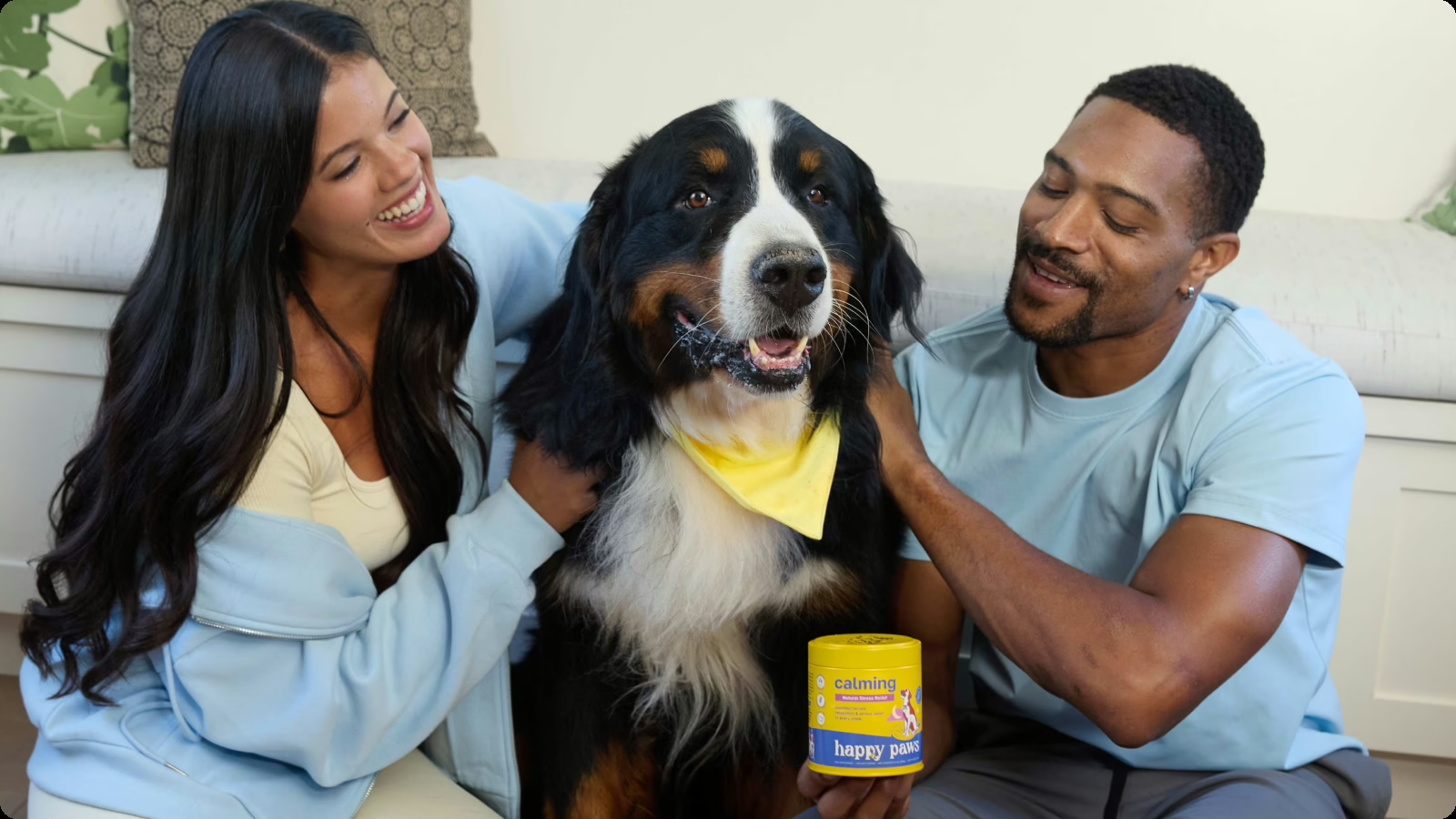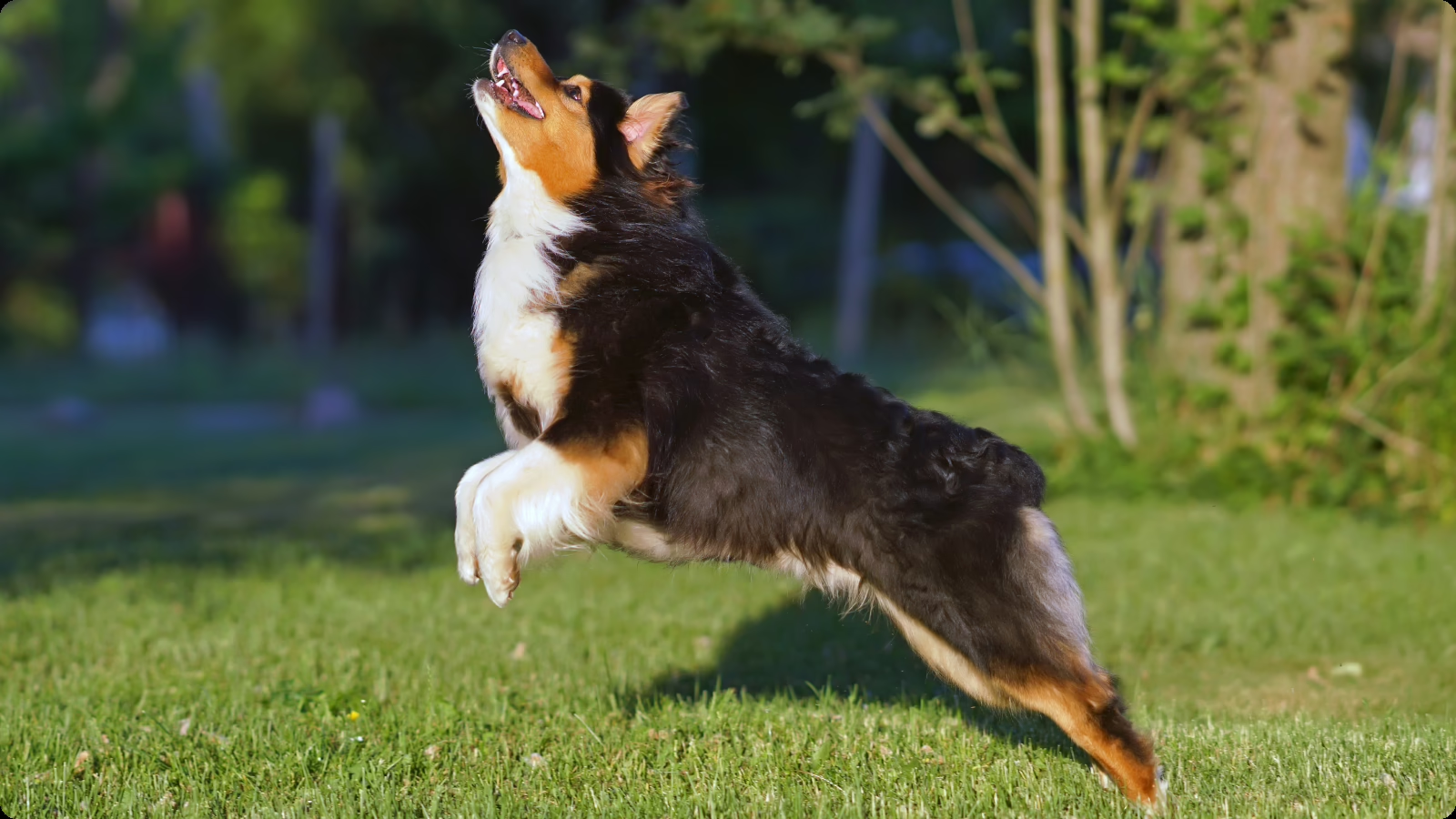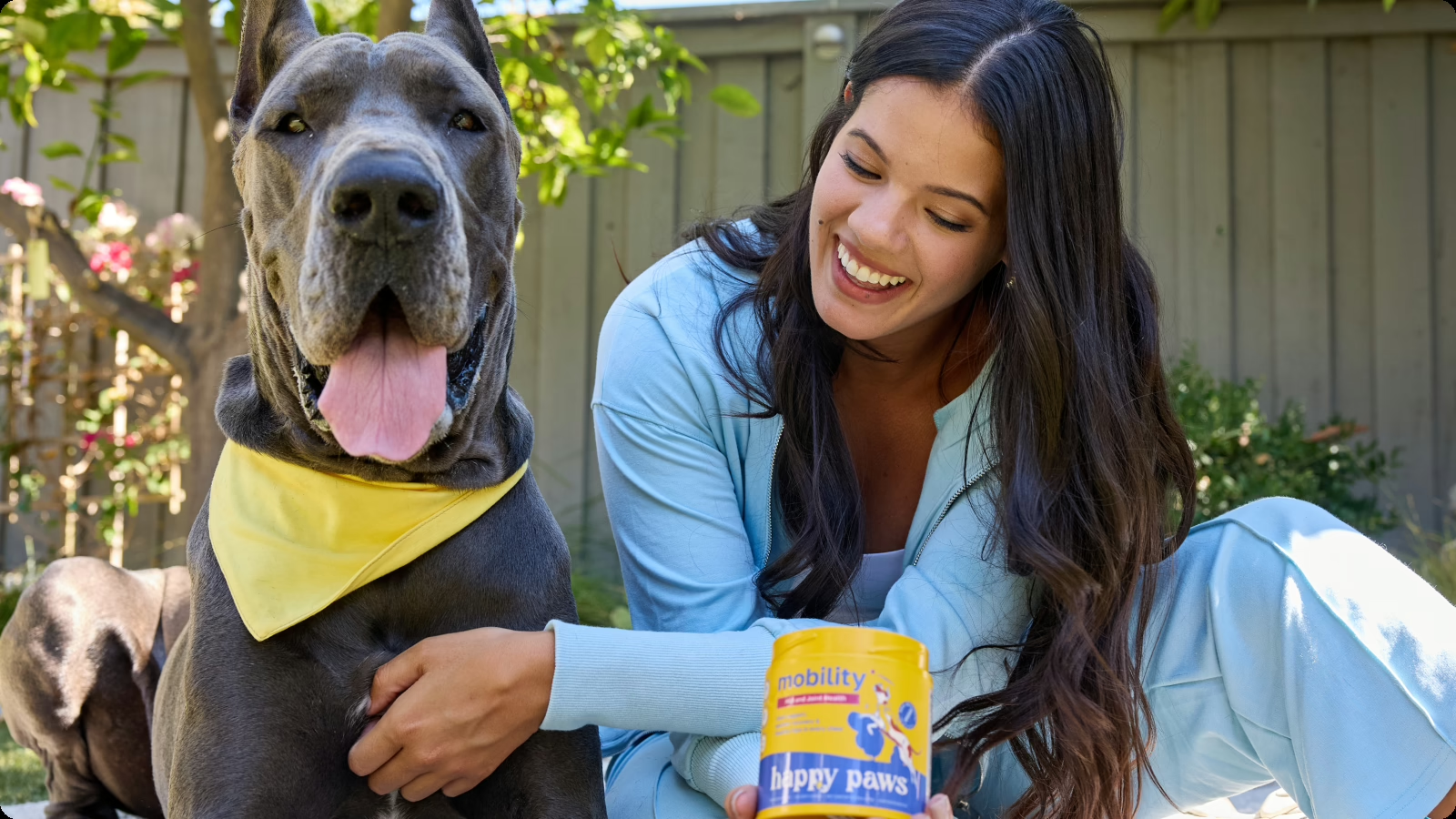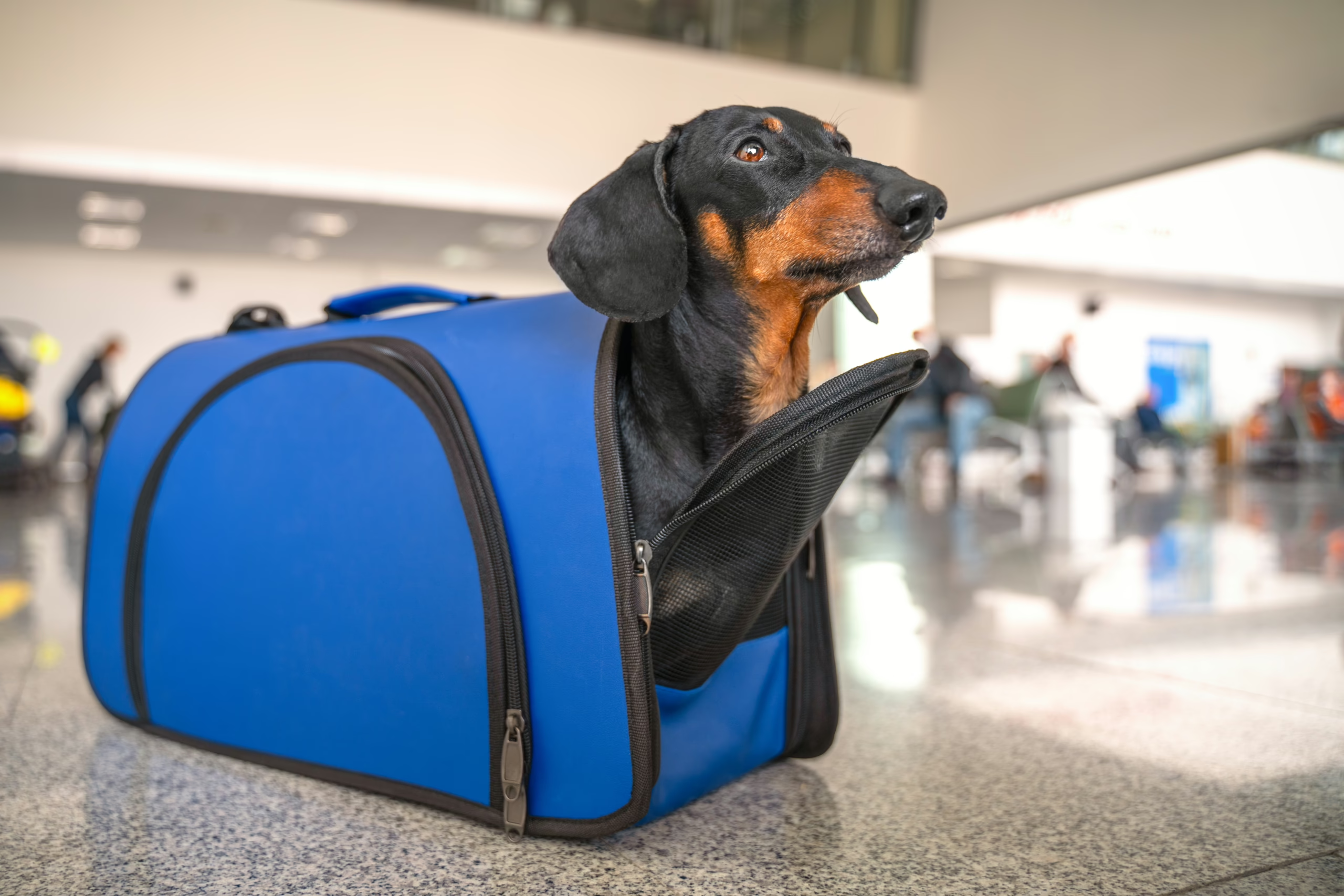Your dog contains multitudes. They can be quirky, confident, curious, mischievous, playful, and sleepy. But sometimes, when the conditions are right, your pupper’s boisterous personality can cower inside their shell, showing the world their anxious side instead. Dog anxiety is common; it’s normal and doesn’t mean you have done anything wrong as the pet owner.
Many dogs have anxious eras that they gradually grow out of. Other dogs carry their anxious tendencies with them from puppyhood through adulthood. And some dogs age into their anxiety, only growing stressed ’n’ frazzled in their grizzled years.
Here, we’ll help you choose an all-natural solution for tackling your dog’s anxiety. We’ll show you why natural ingredients, like chamomile, lavender, and valerian root, help settle your dog’s nerves, and why they should be enjoyed in a dog chew—not as loose herbs. We’ll also outline other ways you can help ease your dog’s nerves naturally, with help from a routine schedule, daily exercise, and a friendly vet!
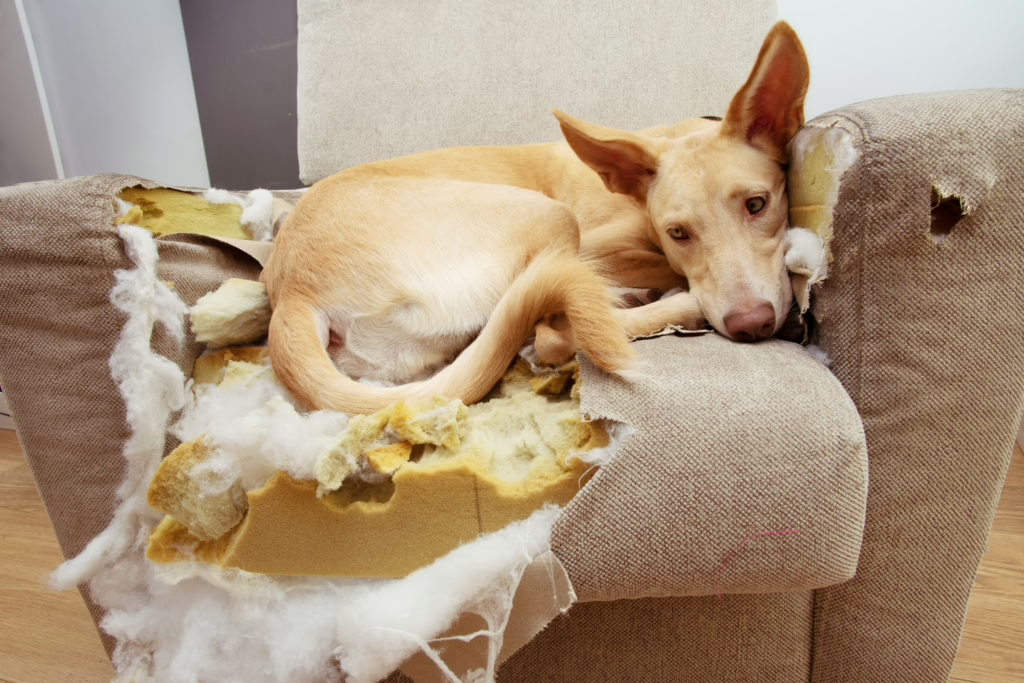
Why Causes Dog Anxiety?
For many dogs, the mere sight of balloons, the reach for the vacuum, or the distant pop of fireworks can be too much for them. Their hackles go up, their tails get tucked, and their ears pin back in fright. And for others, these things are benign—long hair, don’t care. What causes anxiety in dogs is subjective, and all causes boil down into three types of canine anxiety.
Age-Related Anxiety
For many dogs, aging gracefully comes naturally. But for others, their grizzled years come with cognitive health decline, sight loss, and hearing loss, all of which can cause a growing sense of anxiety in some dogs. While these changes are oftentimes normal in older dogs, your grizzled pup won’t understand what’s happening. If you have an older dog who’s progressively showing more signs of anxiety, it might be best to consult your veterinarian.
Fear-Related Anxiety
Fear-related anxiety might be the one you can most empathize with. This type of anxiety stems from novel and learned experiences. Your dog might be scared of the vacuum—has been since day one. Or, they might suddenly become terrified of the vacuum after it sucked up their beloved stuffed crocodile. Your dog’s fear-related anxieties can pop up in puppyhood or materialize as they age. These fears are typically long-standing and pretty easy to avoid, if you know what they are.
Fear-related anxiety can include:
- Strangers
- New places
- Other dogs
- Loud noises
- Tight spaces
Separation Anxiety
The most common form of canine anxiety is separation anxiety, affecting up to 14% of all dogs, regardless of age, breed, or size. Separation anxiety occurs when your dog and you, their favorite person on Earth, are separated. That can be when they’re left home alone, at a friend’s house, or at a doggie daycare. While you might only be gone for a few minutes to a few hours, this separation can send your dog into an anxious stress spiral. If you believe your dog has separation anxiety, we’ll discuss a few ways to help below.
Types of Calming Natural Herbs
While you might already know of a few all-natural calming ingredients, here’s a brief look at each one found in our natural Calming Dog Chews!
Chamomile
Popular in tea, chamomile is a medicinal herb that delivers benefits for sleep support, stress, and some tummy troubles.
Passion Flower
A flowing plant, passion flower is a popular supplement for its naturally calming effects.
Valerian Root
Valerian root is a popular sleep supplement that certainly is not the best ingredient to consume raw—especially for pets. So, instead, give your dog the same compound, but in a safe, dog-happy supplement.
Tryptophan
Tryptophan is a naturally occurring amino acid that’s found in a number of foods. It’s a necessary building block for proteins and is important for constructing other necessary molecules. Tryptophan is also great at mitigating stress and boosting sleep support.
L-theanine
Primarily found in green and black teas, L-theanine is commonly used to ease stress and anxiety, while also supporting sleep.
All-in-One Calming Chews
While your dog can benefit from naturally calming herbs and ingredients, whose dog wants to munch on some lavender or cough back some loose chamomile? Dogs are adventurous eaters, but even these natural remedies might be a little too fragrant to force down. So, instead, give your dog all these ingredients in one tasty, naturally calming chew!
Our Calming Dog Chews are made with all the ingredients above and more, letting your dog enjoy a tasty, peanut-butter-flavored chew! Just add a desired serving onto your dog’s kibble, or give it to them as a treat.
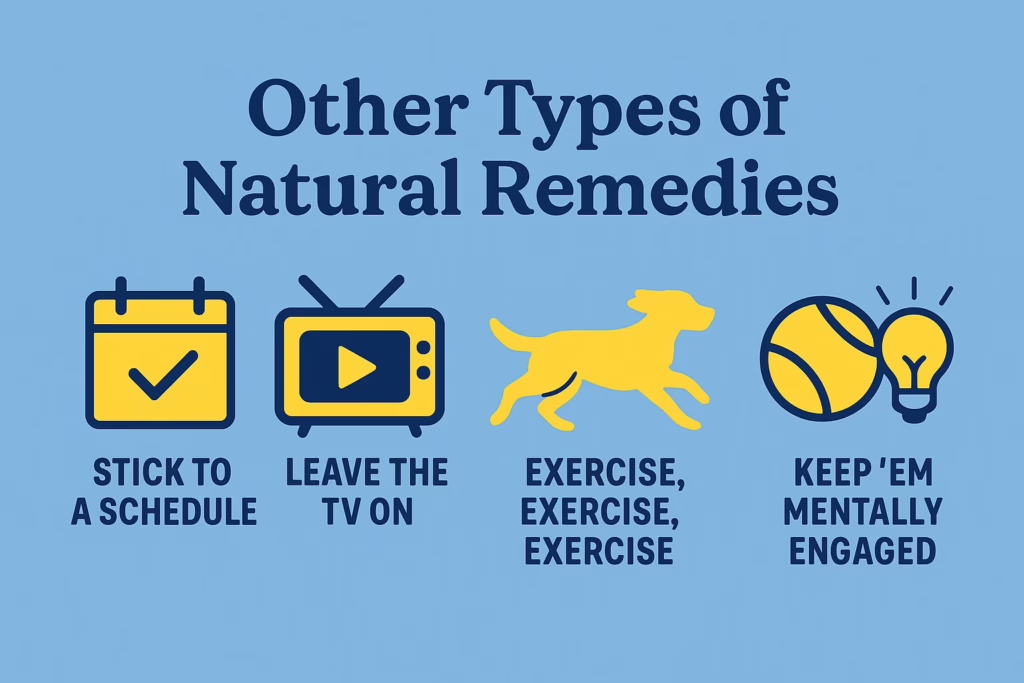
Other Types of Natural Remedies
Want to add a few more natural remedies for dog anxiety to your pup’s day-to-day routine? Here are a few healthy habits that can help most dog owners!
Stick to a Schedule
A set routine might just help an anxious dog who’s nervous about the day ahead. It’s best to start and end your dog’s day with the same steps, whether that’s a quick walk around the block, a meal, or a mentally stimulating activity. Find a routine that fits with your furry friend and stick to it. A set routine will help you, too!
Leave the TV On
When they leave their dogs home alone, some pet owners like to keep the television on, playing a cooking show, or even just white noise. This extra sound can help drown out the noise from outside, masking the sound of stressful neighborhood racket.
Exercise, Exercise, Exercise
Stay on top of your dog’s health while also running out their crazies with a scheduled time of canine exercise. Before leaving your dog at home, just take them on an extra loop through the neighborhood or add in a few more rounds of fetch. Exercise can help tire your dog out, which can help them sleep and rest until your return.
Keep ’em Mentally Engaged
For some dogs, their anxiety can stem from a general, unexciting case of boredom. Many dogs, if they aren’t consistently stimulated, can grow bored, resorting to taking their anxiety out in unproductive ways: chewing shoes, tearing up your couch, and pulverizing your socks. If you’d like to keep your dog mentally engaged, toys like snuffle mats and mental enrichment mats can help them flex and strengthen their mental fortitude. If you don’t have a mentally stimulating toy handy, fold some treats into a towel, twist it, and tie the ends closed. The scent from the treats will captivate your dog’s nose, while the tied-up towel will serve as a worthy, long-lasting challenge.
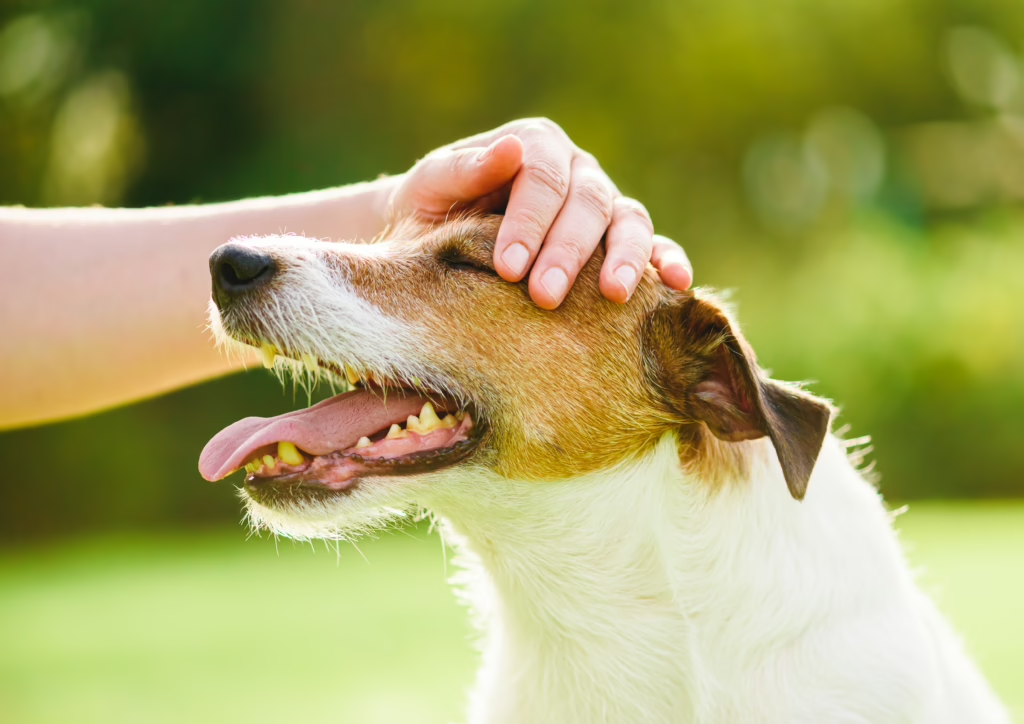
When to Consult a Vet
The best time to consult a veterinary professional is when you feel like your dog’s anxiety is out of your control. This can stem from changes in their behaviors, like destructive tendencies or going to the bathroom indoors. A veterinarian will have intimate insight into your dog’s health and will help you decipher just what’s needed to soothe their stresses and promote relaxation—whether you’re home or not.
Parting Thoughts
Dog anxiety is normal and (sometimes) even expected. When you move, change your schedule, or welcome in a new roommate, your dog’s world can shift, causing them to grow a little anxious, stressed, and pressed. While several all-natural remedies are available, many pet owners like to soothe their dog’s stress with calming supplements. Thanks to nature-backed ingredients like chamomile, valerian root, and tryptophan, these products deliver naturally soothing effects that can help ease your dog’s stresses, while giving you a little peace of mind!
